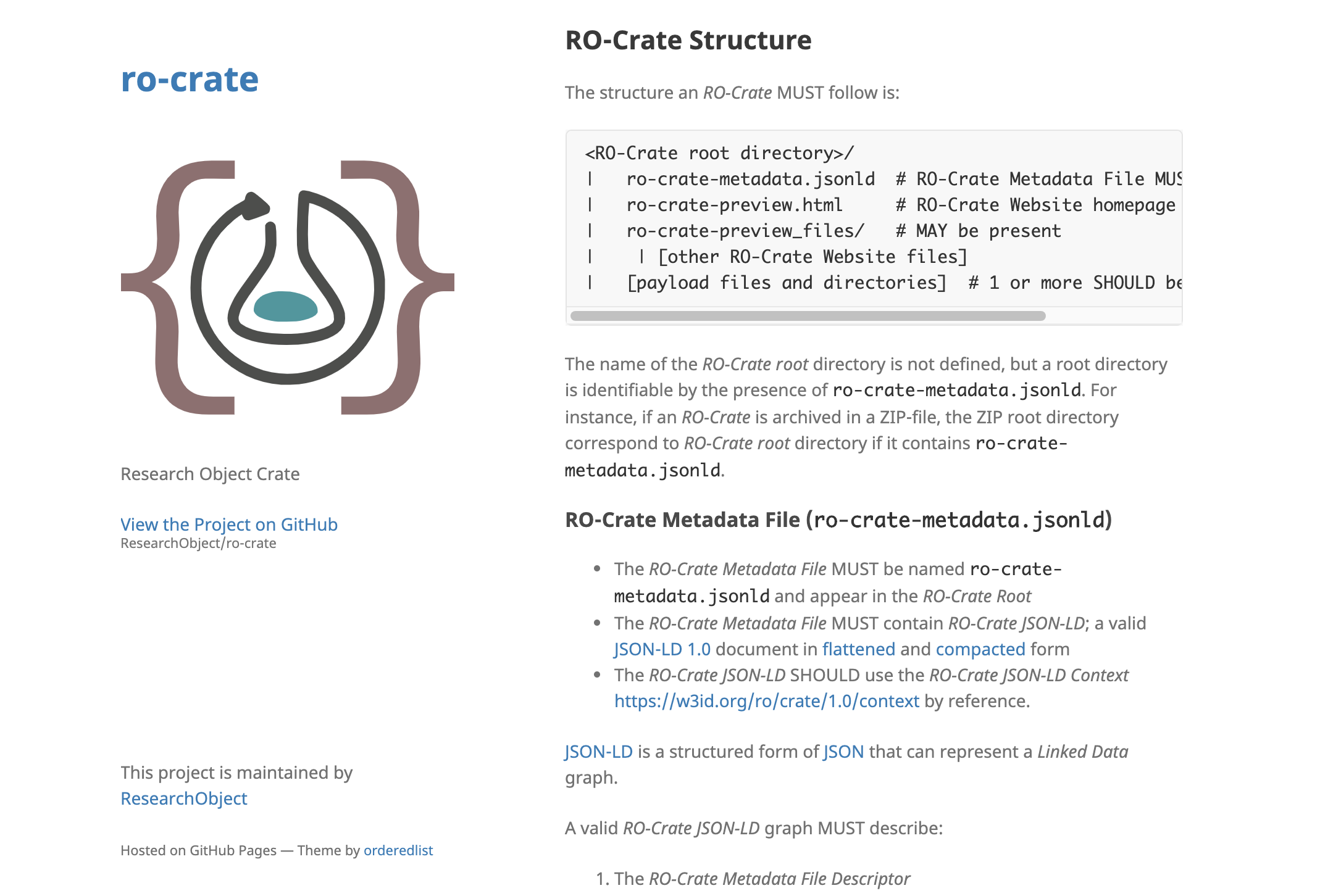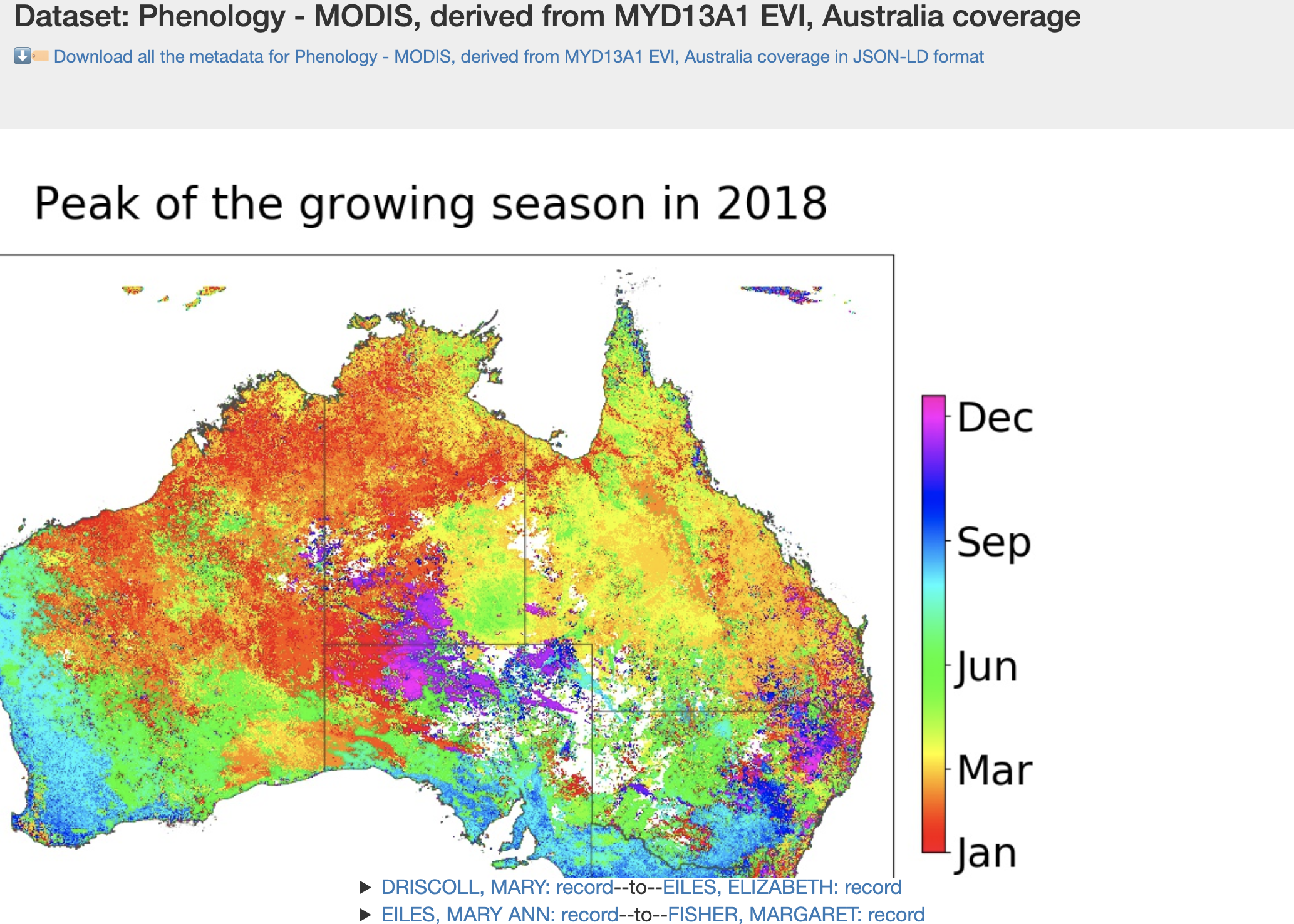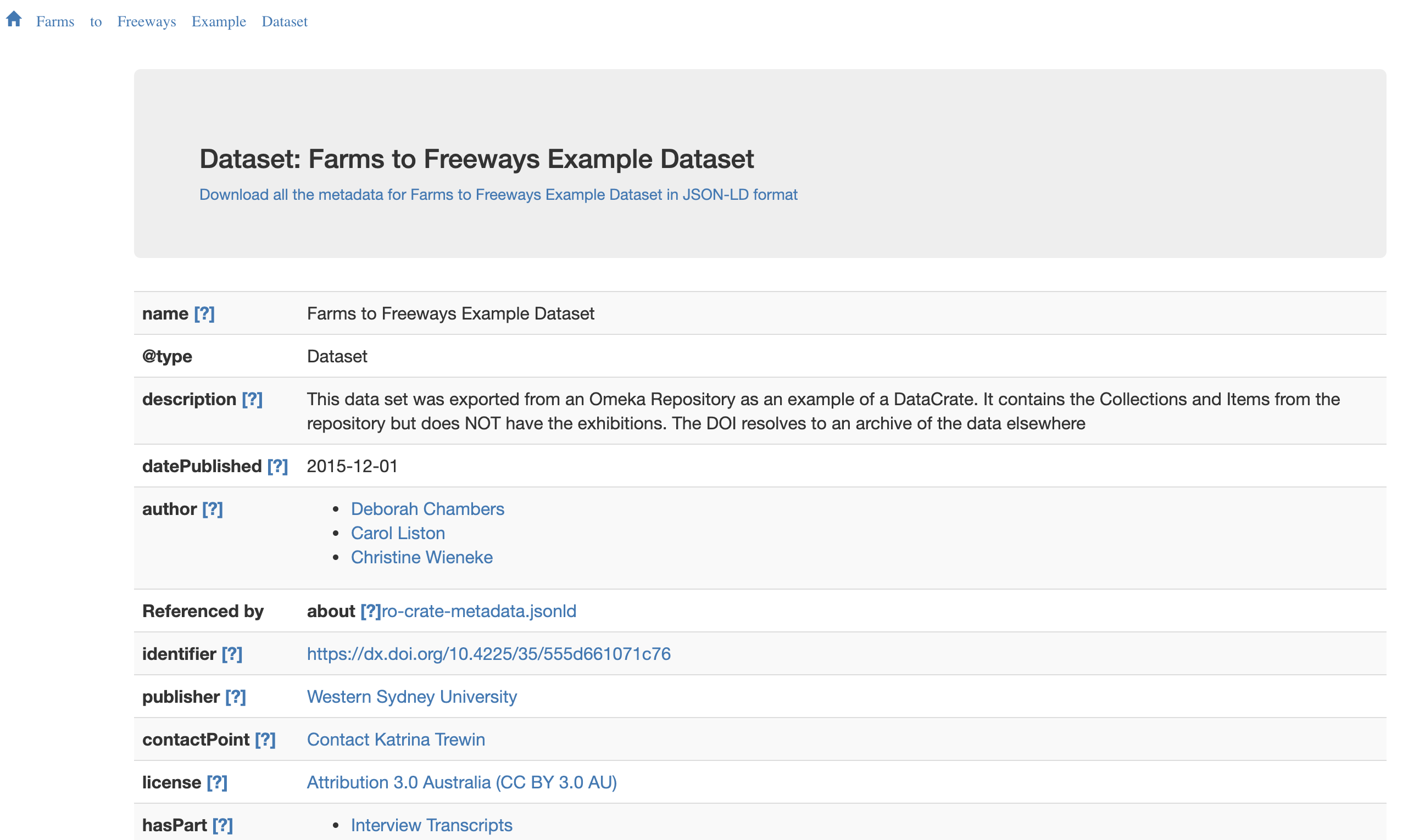Arkisto uses RO-Crate, which is a method for describing and packaging research data from ANY discipline into distributable, reusable Digital Objects with any amount of detailed metadata from simple who/what/where discovery-oriented description to metadata at the file-level or even variable level inside files.
RO-Crate is an implementer-focussed guide to best practice and is based on widely-used standards with schema.org annotations in JSON-LD and aims to make it easy to creat good quality metadata description tools which are accessible and practical for use in a wide variety of situations; from an individual researcher working with a folder of data, to large data-intensive computational research environments.
RO-Crate is used in the UTS Research Data Portal and the Modern PARADISEC demonstrator for all data objects.

RO-Crate is method for describing a dataset as a digital object using a single linked-data metadata document

The dataset may contain any kind of data resource about anything, in any format as a file or URL
![3 📂
<p class="my-4">|-- Folder1/
| |-- file1.this
| |-- file2.that
|-- Folder2/
| -- file1.this
| |-- file2.that
|-2021-04-08 07.58.17.jpg
{
"@id": "2021-04-08 07.58.17.jpg",
"@type": "File",
"contentSize": 3271409,
"dateModified": "2021-04-08T07:58:17+10:00",
"description": "",
"encodingFormat": [
{
"@id": "https://www.nationalarchives.gov.uk/PRONOM/x-fmt/391"
},
"image/jpeg"
],
"name": "Cute puppy"
},</p>
<p class="my-4">](Slide3.png)
Each resource can have a machine readable description in JSON-LD format

A human-readable description and preview can be in an HTML file that lives alongside the metadata

Provenance and workflow information can be included - to assist in data and research-process re-use

RO-Crate Digital Objects may be packaged for distribution eg via Zip, Bagit and OCFL Objects

RO-Crate is the result of international collaboration, and has an actively-maintained specification.

